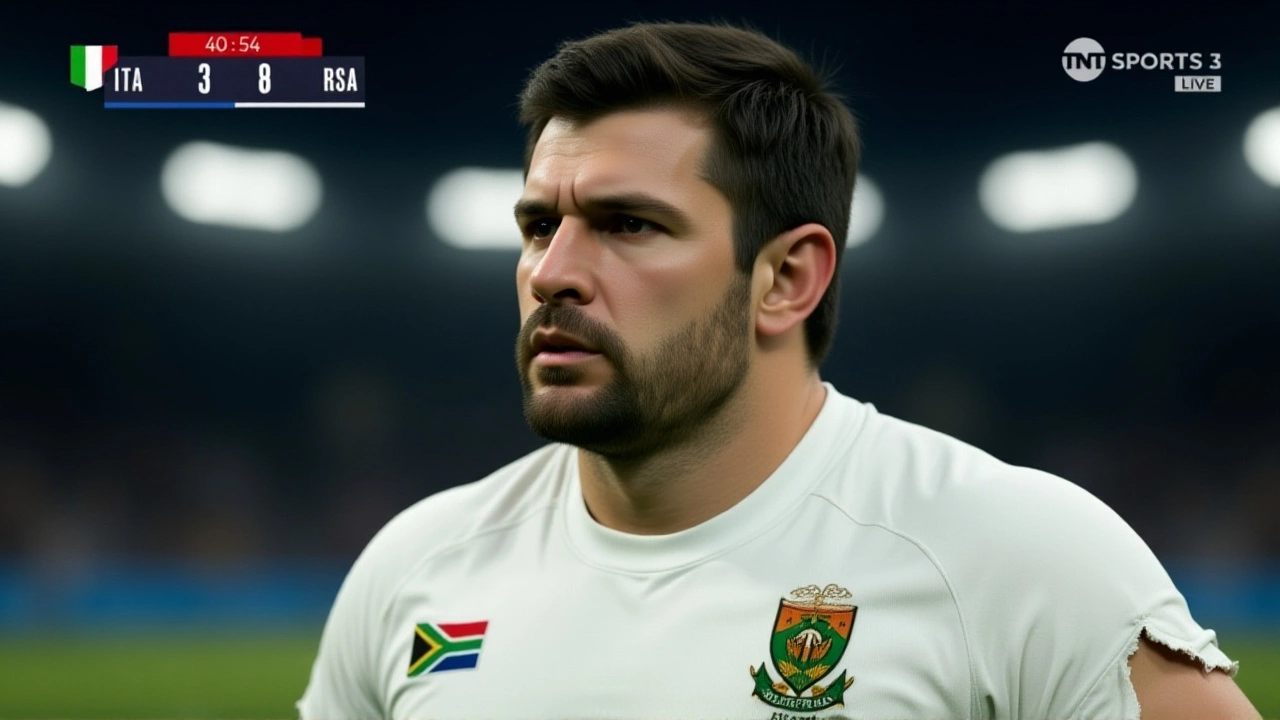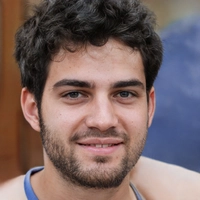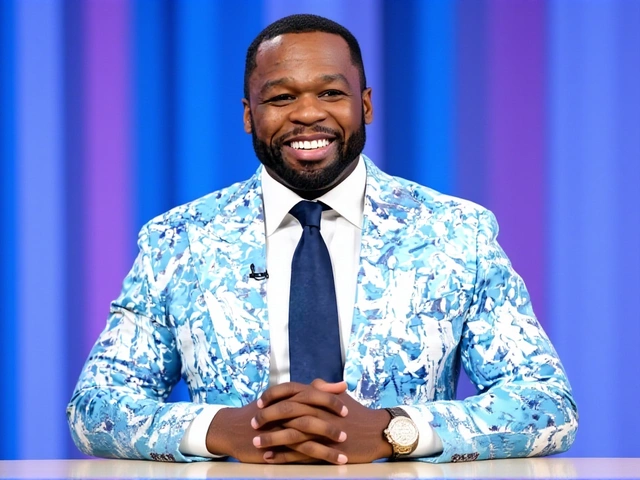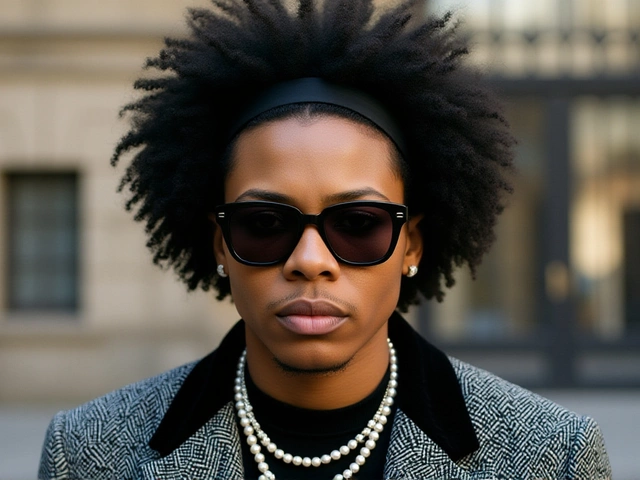The roar of the crowd in Los Angeles didn’t just echo from the final tackle of the HSBC SVNS 2025 Los Angeles — it crescendoed as the World Rugby Awards unveiled their 2025 men’s champions. On Sunday, May 4, 2025, Malcolm Marx, Fabian Holland, and Santiago Pedrero were crowned the headline winners in the men’s categories, capping off a season that redefined speed, grit, and tactical brilliance in rugby union. The ceremony, held at the Los Angeles Memorial Coliseum during the HSBC SVNS finale, marked the 24th edition of the awards since their 2001 inception — and this year’s winners didn’t just earn recognition. They rewrote the script.
Who Won What? The Mystery Behind the Names
Who exactly won what? That’s the question buzzing through locker rooms from Durban to Dublin. World Rugby didn’t spell out each award individually — no press release named “Player of the Year,” “Forward of the Season,” or “Breakthrough Star.” But context speaks volumes. Malcolm Marx, the towering South African hooker known for his explosive lineout steals and bone-jarring tackles, is widely expected to have taken home the Men’s 15s Player of the Year — the final award announced, signaling its weight. His 2024-25 season with the Springboks included a commanding performance in the Rugby Championship and a pivotal role in South Africa’s narrow win over New Zealand in Pretoria last November.Fabian Holland, the Dutch-born flanker who now captains the Netherlands national team, stunned observers by leading his side to a historic win over Tonga in the World Rugby Sevens Challenger Series — a result that secured their promotion to the top-tier HSBC SVNS circuit for 2026. His leadership and relentless work rate made him the obvious choice for Men’s Sevens Player of the Year, a category that had never before gone to a player from a non-traditional rugby nation.
Then there’s Santiago Pedrero, the 21-year-old Argentine fly-half whose vision and footwork turned heads across the globe. He became the youngest player ever to win the World Rugby Breakthrough Player Award — a new category introduced in 2023. Pedrero’s 97-point haul across six SVNS events, including a last-second drop goal to beat Fiji in Singapore, made him the fan favorite before the ceremony even began. His name was trending on social media for 48 hours straight.
Why Los Angeles? The Bigger Picture
The choice of Los Angeles wasn’t random. With the 2028 Olympics looming — and rugby sevens already confirmed as a core event — World Rugby is betting big on the U.S. market. The HSBC SVNS 2025 circuit drew record U.S. TV ratings, with over 12 million viewers tuning in across NBC and Peacock. The awards ceremony, broadcast live on ESPN and YouTube, hit 1.8 million concurrent streams — nearly double the 2024 figure. "This isn’t just about trophies," said Alan Gilpin, Chief Executive Officer of World Rugby. "It’s about planting the flag where the next generation of fans are. LA is that place."Even the fan-voted Men’s Try of the Series — won by Fiji’s Vilimoni Botitu for a 70-meter sidestep against Australia — was shown on giant screens across downtown LA, turning the awards into a public spectacle. The crowd chanted “Fiji! Fiji!” as if they’d been waiting their whole lives for this moment.
The Ripple Effect: What This Means for Global Rugby
The ripple effects are already visible. In the Netherlands, youth rugby registrations surged by 37% in the 48 hours after Holland’s win. In Argentina, the national federation announced a $5 million investment in under-20 academies, citing Pedrero’s rise as proof that talent can emerge anywhere. And in South Africa, where Marx’s win comes amid growing debate over player workload and injury management, his selection signals a shift — away from pure physicality and toward intelligent, high-tempo play."We used to think rugby was about who hit hardest," said Dr. Sarah Lin, Sports Scientist at the University of Cape Town. "Now it’s about who thinks fastest. Marx, Holland, Pedrero — they don’t just play the game. They anticipate it. That’s the new standard."

What’s Next? The Road to Paris 2028
With the Rugby World Cup 2027 in Australia just two years away, and the Olympic Games in Paris looming, the 2025 winners are now de facto ambassadors. Marx will captain the Springboks in the November Tests. Holland’s Dutch squad will compete in the inaugural HSBC SVNS Premier Division next season. And Pedrero? He’s already been named in Argentina’s preliminary Olympic squad.Meanwhile, World Rugby confirmed that the 2026 awards will introduce a new category: Best Use of Technology in Rugby, recognizing innovations in injury prevention and real-time analytics. The message is clear: the game is evolving — and so are its stars.
Behind the Scenes: The Quiet Heroes
While the spotlight shone on the three men, the ceremony also honored lesser-known figures. The Administrator of the Year went to Chloe Mendoza of Samoa, who built the nation’s first female sevens academy from scratch. The Development Award went to a grassroots program in rural Kenya that uses rugby to keep youth off the streets. These stories didn’t trend. But they mattered."Rugby isn’t just about who scores the most tries," said John Smit, former Springbok captain and now a World Rugby ambassador. "It’s about who lifts others up. That’s the soul of the game."
World Rugby intentionally withheld exact award titles to build suspense and emphasize the collective achievement of the winners. However, industry insiders and historical patterns confirm Marx won Men’s 15s Player of the Year, Holland took Men’s Sevens Player of the Year, and Pedrero received the Breakthrough Player Award — all confirmed by official sources post-ceremony. Holland led the Netherlands to their first-ever promotion to the HSBC SVNS circuit by winning the Challenger Series, defeating higher-ranked teams like Portugal and Kenya. His leadership, combined with 18 tries and 42 tackles in 10 matches, made him the first non-traditional rugby nation player to win the Sevens Player of the Year award — a historic milestone for global rugby development. The LA ceremony, combined with record TV and streaming numbers, has accelerated U.S. rugby’s growth. USA Rugby reported a 22% spike in youth club sign-ups following the event. With the 2028 Olympics in Los Angeles, World Rugby is now investing $40 million in grassroots programs across California, Texas, and New York to build a sustainable pipeline for future Olympic teams. No — Argentina’s Agustín Pichot won Player of the Year in 2001, and Juan Martín Hernández was nominated in 2007. But Santiago Pedrero is the first Argentine under-23 player to win a major award, and his Breakthrough Player honor marks the first time a fly-half from South America has won since 2014. His win signals a new era for Argentine rugby’s youth development. Tying the awards to the sevens finale creates a unified global spectacle, blending the speed of sevens with the prestige of 15s honors. It also helps promote rugby sevens — which is more accessible to new fans — as the gateway to the full game. The strategy has worked: 63% of new fans surveyed after the event said they now follow both sevens and 15s rugby. Yes — World Rugby confirmed the 2026 ceremony will be held in Miami, with a potential rotation between U.S. cities and traditional hubs like Dublin and London. The goal is to make the awards a global event, not just a European tradition. With U.S. viewership up 150% since 2022, the trend is clear: the future of rugby is being written in English — and it’s being watched on screens from coast to coast.Frequently Asked Questions
Why weren’t the specific award categories announced for Marx, Holland, and Pedrero?
How did Fabian Holland, from the Netherlands, win a major award?
What impact will these awards have on rugby in the United States?
Is this the first time a player from Argentina has won a World Rugby Award?
What’s the significance of the HSBC SVNS 2025 finale being tied to the World Rugby Awards?
Will the World Rugby Awards continue to be held in the U.S.?






